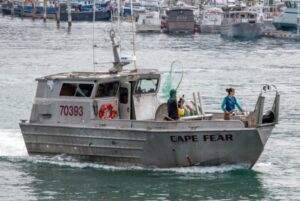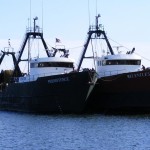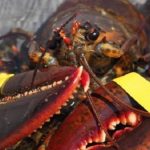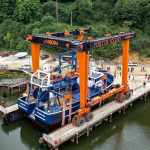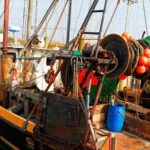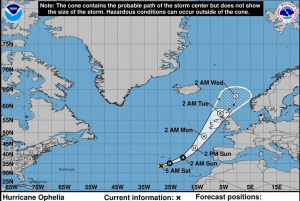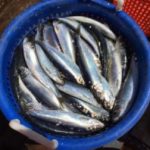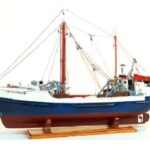Daily Archives: October 17, 2016
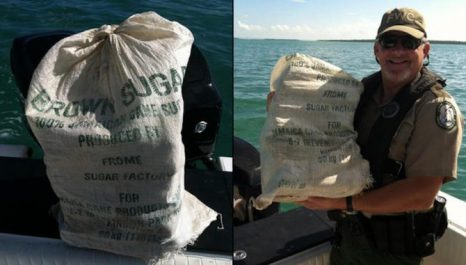
$300,000+ of Marijuana Seized ‘Floating off the Shore’ of Florida over 27 Days
In a span of 27 days, U.S. Customs and Border Patrol, in cooperation with the U.S. Coast Guard, recorded the seizure of nearly 400 pounds of marijuana found floating off the coast of Florida. Between September 15 and October 12 fifteen separate drug seizure events have occurred in various parts of the Florida Keys and East Florida coastline, explained CBP in a press release. “There has been a significant spike in drugs washing up on shore,” said U.S. Border Patrol Miami Sector Division Chief, Todd Bryant. “This is at least partially attributable to improved partnerships across the state but potentially also to a shift in smuggling methods.” The drugs seized in that 27 day span reportedly have a street value of more than $300-thousand. Link 20:26
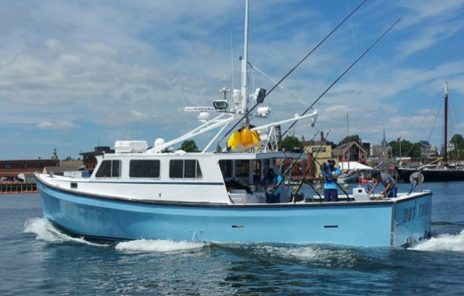
Axalta’s Imron Paint Shines on Fishing Boat Featured on TV Hit Show “Wicked Tuna”
Axalta Coating Systems, a leading global supplier of liquid and powder coatings celebrating its 150th anniversary in the coatings industry, is excited to announce its sponsorship of the Hot Tuna fishing boat featured on National Geographic Channel’s hit show, Wicked Tuna. Axalta’s Imron® MS600™ Single Stage polyurethane topcoat protects and beautifies Captain T.J. Ott’s 39-foot, Hot Tuna boat. The boat is painted in a custom color aptly named Hot Tuna Blue. The boat will be featured in next season’s episodes in winter 2017. Imron MS600 is scientifically engineered to achieve long-lasting high gloss appearance, performance, and corrosion protection specifically for the marine segment. The durability and abrasion resistance of Axalta’s marine coatings help ensure that fishing boats and yachts retain their mirror-like finish longer. “Hot Tuna perfectly showcases our Imron marine coatings,” said Christopher Papa, Axalta Marketing Manager. “Axalta is committed to delivering the industry’s best appearance and corrosion protection, which combine to reflect the attributes that customers have come to value in the Imron brand.” Read the rest here 16:15
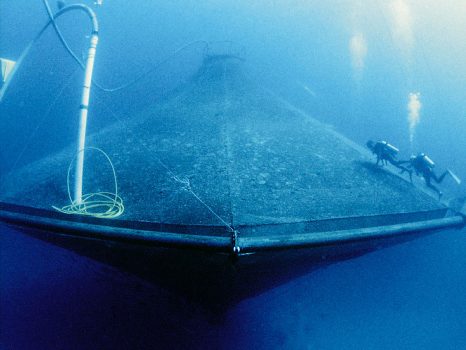
Feds must end push for ocean aquaculture
The world’s oceans are in trouble. Litter, urban runoff, dead zones, leaking oil rigs and other factors put stress on sea life, notably fish, and cause alarming changes in our marine environment. One thing we do know for sure is that we should not be adding stress and pollution to ocean ecosystems. That’s why it is so baffling that we are seeing a renewed major push by the federal government for industrial ocean fish farms. Lobbyists for the companies who build these aquaculture operations would have you believe the industry is a solution for preserving our marine environment by growing fish to ease the need for taking more fish from the wild. In reality, however, these facilities can exacerbate many of the problems already hurting our oceans. Open water fish farms are comprised of giant floating net pens with thousands of fish all eating, excreting and growing in one space. Cages used to contain fish are flow-through, meaning anything from the pens – excess feed, fish wastes, and any chemicals – can go directly into natural waters. Read the rest here 15:18
Pacific Marine Center Expands Capabilities With New Marine Travelift 200CII Boat Hoist (200 TON CAPACITY)
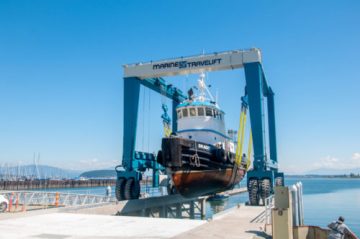 Marine Travelift Inc. has announced the delivery of its 200CII mobile boat hoist to Pacific Marine Center for use at their facility in Anacortes, Washington. Pacific Marine Center is a full service boat yard handling commercial fishing boats, tugs, and pleasure craft. There were two major goals Pacific Marine Center wanted to accomplish with the purchase of the new 200CII boat hoist according to Dave Marshall, Sales Manager at Kendrick Equipment the certified Marine Travelift distributor for the Northwest region of North America. “The customer wanted to penetrate new markets and attract an entirely new class of boat to Anacortes,” Marshall explained. “With the Marine Travelift mobile boat hoist they can pick full capacity with the slings in any position, allowing them to target the shorter and heavier fishing boats they haven’t been able to haul in the past. Expanding their capabilities and targeting these specific size fishing boats is also allowing Pacific Marine Center to accomplishing a second goal of theirs. “Another goal they had was to build a fishing vessel repair business in Anacortes, a gateway to the Pacific Ocean,” said Marshall. “The new mobile boat hoist will allow them to service a strong fleet of commercial vessels that operate throughout Alaska, Canada and the San Juans.” Read the Press Release here 13:46
Marine Travelift Inc. has announced the delivery of its 200CII mobile boat hoist to Pacific Marine Center for use at their facility in Anacortes, Washington. Pacific Marine Center is a full service boat yard handling commercial fishing boats, tugs, and pleasure craft. There were two major goals Pacific Marine Center wanted to accomplish with the purchase of the new 200CII boat hoist according to Dave Marshall, Sales Manager at Kendrick Equipment the certified Marine Travelift distributor for the Northwest region of North America. “The customer wanted to penetrate new markets and attract an entirely new class of boat to Anacortes,” Marshall explained. “With the Marine Travelift mobile boat hoist they can pick full capacity with the slings in any position, allowing them to target the shorter and heavier fishing boats they haven’t been able to haul in the past. Expanding their capabilities and targeting these specific size fishing boats is also allowing Pacific Marine Center to accomplishing a second goal of theirs. “Another goal they had was to build a fishing vessel repair business in Anacortes, a gateway to the Pacific Ocean,” said Marshall. “The new mobile boat hoist will allow them to service a strong fleet of commercial vessels that operate throughout Alaska, Canada and the San Juans.” Read the Press Release here 13:46
Coast Guard medevacs fisherman suffering from seizures, 100 miles off Galveston
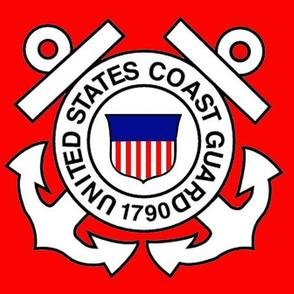 A 38-year-old man was medevaced by a Coast Guard helicopter Sunday, after reports of seizures on a fishing vessel about 100 miles southeast of Galveston, Texas. The crew of the fishing vessel Black Jack IV contacted Coast Guard Sector Houston-Galveston watchstanders on VHF marine band radio channel 16 at about 6:30 p.m., to report that the man was having seizure like symptoms and needed assistance. The watchstanders launched an Air Station Houston MH-65 Dolphin helicopter crew to medevac the man and an Air Station Corpus Christi HC-144 Ocean Sentry airplane crew to provide communications and safety support so far offshore. The helicopter crew hoisted the man, had to stop and refuel on a rig in the gulf and then delivered him to Galveston’s Scholes International Airport, where EMS was standing by to take him to the University of Texas Medical Branch in Galveston. He was reported to be in stable condition. link 13:33
A 38-year-old man was medevaced by a Coast Guard helicopter Sunday, after reports of seizures on a fishing vessel about 100 miles southeast of Galveston, Texas. The crew of the fishing vessel Black Jack IV contacted Coast Guard Sector Houston-Galveston watchstanders on VHF marine band radio channel 16 at about 6:30 p.m., to report that the man was having seizure like symptoms and needed assistance. The watchstanders launched an Air Station Houston MH-65 Dolphin helicopter crew to medevac the man and an Air Station Corpus Christi HC-144 Ocean Sentry airplane crew to provide communications and safety support so far offshore. The helicopter crew hoisted the man, had to stop and refuel on a rig in the gulf and then delivered him to Galveston’s Scholes International Airport, where EMS was standing by to take him to the University of Texas Medical Branch in Galveston. He was reported to be in stable condition. link 13:33
Following court decision Cook Inlet fishermen wait for direction
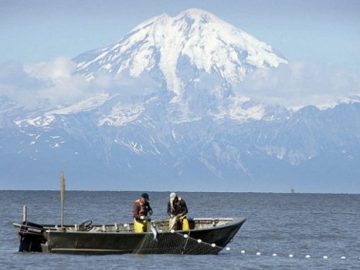 Concerned fishermen gathered at the North Pacific Fishery Management Council’s October meeting in Anchorage to discuss a recent federal court decision that turns control of salmon fisheries in Cook Inlet, Prince William Sound and the Alaska Peninsula over to state management. Though stakeholders brought their suggestions, the council did not direct its staff to any action related to the subject of a salmon FMP. Instead, the council reiterated that the decision will be remanded back to the lower court where it could either be appealed or produce a directive for the council to write a salmon FMP. The North Pacific Fishery Management Council governs federal fisheries, which take place from three to 200 miles offshore. In 2013, industry group United Cook Inlet Drift Association, or UCIDA, filed a lawsuit to repeal a 2011 council decision, which became Amendment 12 to the Alaska salmon fishery management plan, or FMP. The initial suit was rejected by U.S. Alaska District Court Judge Timothy Burgess in September 2014. A three-judge panel of the 9th Circuit unanimously remanded the case back to Burgess with instructions to find in favor the plaintiffs. Read the story here 11:48
Concerned fishermen gathered at the North Pacific Fishery Management Council’s October meeting in Anchorage to discuss a recent federal court decision that turns control of salmon fisheries in Cook Inlet, Prince William Sound and the Alaska Peninsula over to state management. Though stakeholders brought their suggestions, the council did not direct its staff to any action related to the subject of a salmon FMP. Instead, the council reiterated that the decision will be remanded back to the lower court where it could either be appealed or produce a directive for the council to write a salmon FMP. The North Pacific Fishery Management Council governs federal fisheries, which take place from three to 200 miles offshore. In 2013, industry group United Cook Inlet Drift Association, or UCIDA, filed a lawsuit to repeal a 2011 council decision, which became Amendment 12 to the Alaska salmon fishery management plan, or FMP. The initial suit was rejected by U.S. Alaska District Court Judge Timothy Burgess in September 2014. A three-judge panel of the 9th Circuit unanimously remanded the case back to Burgess with instructions to find in favor the plaintiffs. Read the story here 11:48

Selling Lobster and Themselves: Cousin’s Maine Lobster Update – What Happened After Shark Tank
The introduction video started off with Jim Tselkis and Sabin Lomac introducing themselves in front of lobster cages, and a Maine harbor. They said that they were cousins from Maine. Jim said that the best part about growing up in Maine was definitely the lobster. He insisted that Maine lobster was the best lobster meat you’ll ever have. He said that they were currently living in Los Angeles. The video flashed to food truck with Cousin’s Maine Lobster emblazoned on the top. Jim peeked out from inside, and asked who wanted some fresh Maine lobster. The two walked into the Shark Tank. They greeted the Sharks, and introduce themselves. They told the Sharks that they were seeking $55,000 in exchange for 5% of Cousin’s Maine Lobster. Jim asked the Sharks to Picture People crowding around lobster Shacks in Maine, waiting for the chance to taste Maine’s signature dish, the lobster roll. Jim said that they brought then Maine lobster experience to Southern California. Read the story here 11:32
N.B. reports first cases of infectious salmon anaemia since 2012
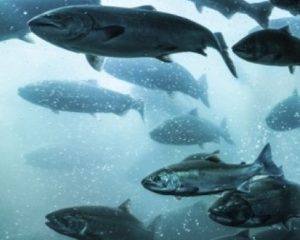 Canada’s Food Inspection Agency is reporting the first New Brunswick cases of infectious salmon anaemia in four years. Four separate incidents have been documented in the Bay of Fundy since March, the most recent on Sept. 20. In each case a single fish was found to have the disease, according to the New Brunswick Department of Agriculture Aquaculture and Fisheries and the Atlantic Canada Fish Farmers Association. “In this particular case, it was four fish,” said Susan Farquharson of the association. “Four cages were depopulated and there hasn’t been any further incidents.” Farquharson claims it’s possible no other fish were contaminated in the four cage sites involved. Smells fishy! Read the story here 11:08
Canada’s Food Inspection Agency is reporting the first New Brunswick cases of infectious salmon anaemia in four years. Four separate incidents have been documented in the Bay of Fundy since March, the most recent on Sept. 20. In each case a single fish was found to have the disease, according to the New Brunswick Department of Agriculture Aquaculture and Fisheries and the Atlantic Canada Fish Farmers Association. “In this particular case, it was four fish,” said Susan Farquharson of the association. “Four cages were depopulated and there hasn’t been any further incidents.” Farquharson claims it’s possible no other fish were contaminated in the four cage sites involved. Smells fishy! Read the story here 11:08
Isle of Man: King scallop licences cut to conserve the stock
 Measures are being introduced to ensure the sustainability of the island’s king scallop fishery. From the start of the 2016/17 season on November 1, the number of licences issued by the Department of Environment, Food and Agriculture (DEFA) to fish for king scallops within the island’s seas will be reduced. Eligibility will be determined by vessels’ track record of fishing for king scallops over the last few seasons, with vessels’ size taken into account. Explaining the need for the measure, Richard Lole, chief executive officer of DEFA, said: ‘In recent years there has been a significant increase in the number of vessels fishing for king scallops in Manx waters and a corresponding increase in the catch. ‘In 2015/16, 4,500 tonnes of king scallops were landed in the island, worth £4 million at the quayside. ‘At the same time, indications are that stock is under increasing pressure, prompting concerns over the sustainability of this valuable fishery. ‘The new measures will protect those vessels that can demonstrate a historic interest and dependence on the fishery while safeguarding the fishery in the long term.’ At the same time, the first stages of a new inshore marine zoning plan will also be introduced by DEFA. Read the story here 08:51
Measures are being introduced to ensure the sustainability of the island’s king scallop fishery. From the start of the 2016/17 season on November 1, the number of licences issued by the Department of Environment, Food and Agriculture (DEFA) to fish for king scallops within the island’s seas will be reduced. Eligibility will be determined by vessels’ track record of fishing for king scallops over the last few seasons, with vessels’ size taken into account. Explaining the need for the measure, Richard Lole, chief executive officer of DEFA, said: ‘In recent years there has been a significant increase in the number of vessels fishing for king scallops in Manx waters and a corresponding increase in the catch. ‘In 2015/16, 4,500 tonnes of king scallops were landed in the island, worth £4 million at the quayside. ‘At the same time, indications are that stock is under increasing pressure, prompting concerns over the sustainability of this valuable fishery. ‘The new measures will protect those vessels that can demonstrate a historic interest and dependence on the fishery while safeguarding the fishery in the long term.’ At the same time, the first stages of a new inshore marine zoning plan will also be introduced by DEFA. Read the story here 08:51
Bering Sea village wants to surround itself with a marine sanctuary
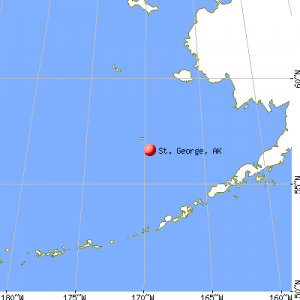 Residents of the smaller of two villages in the Pribilof Islands are asking the federal government to encircle their island with the first national marine sanctuary in Alaska. It’s an effort to protect the fur seals once slaughtered on the Pribilofs and other animal populations they say are plunging dangerously, perhaps because of climate change. The request from the city of St. George is only the second in the state since the Office of National Marine Sanctuaries began accepting sanctuary nominations from the public in 2014. The request, received Oct. 1, may not lead to a sanctuary designation, a process involving years of analysis and significant public engagement, said William Douros, West Coast regional director for the agency, part of the National Oceanic and Atmospheric Administration. Read the story here 08:21
Residents of the smaller of two villages in the Pribilof Islands are asking the federal government to encircle their island with the first national marine sanctuary in Alaska. It’s an effort to protect the fur seals once slaughtered on the Pribilofs and other animal populations they say are plunging dangerously, perhaps because of climate change. The request from the city of St. George is only the second in the state since the Office of National Marine Sanctuaries began accepting sanctuary nominations from the public in 2014. The request, received Oct. 1, may not lead to a sanctuary designation, a process involving years of analysis and significant public engagement, said William Douros, West Coast regional director for the agency, part of the National Oceanic and Atmospheric Administration. Read the story here 08:21
Maine: York Harbor officials, fishermen rally for federal dredging funds
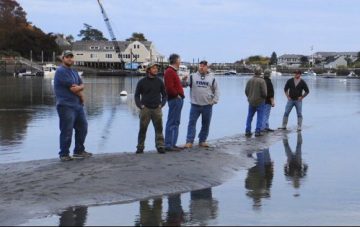 York town officials are fighting for federal funding to remove a buildup of sediment in York Harbor that threatens to ground local fishermen and recreational boaters alike. As part of their effort to draw attention to the problem, the Town of York Harbor Board staged a demonstration Sunday to show how silt deposits from the York River encroach on mooring areas, forming shoals that crest the water at low tide. A group of fishermen and harbor officials stood atop a mound of sediment that juts above the water level at low tide in the middle of one of the harbor’s basins, near the mouth of the river. York Harbormaster David Hutchinson. “They can’t come in at low tide,” he said. According to Harbor Board Chairman David Webber, York Harbor contains moorings for about 330 commercial and recreational boats. Another 200 boats use the harbor regularly but are moored in private marinas. The harbor generates $12 million to $15 million of economic activity each year, he said. “We don’t want to lose any of it, especially with fishing being such a tough business right now,” Webber said. Read the story here 07:54
York town officials are fighting for federal funding to remove a buildup of sediment in York Harbor that threatens to ground local fishermen and recreational boaters alike. As part of their effort to draw attention to the problem, the Town of York Harbor Board staged a demonstration Sunday to show how silt deposits from the York River encroach on mooring areas, forming shoals that crest the water at low tide. A group of fishermen and harbor officials stood atop a mound of sediment that juts above the water level at low tide in the middle of one of the harbor’s basins, near the mouth of the river. York Harbormaster David Hutchinson. “They can’t come in at low tide,” he said. According to Harbor Board Chairman David Webber, York Harbor contains moorings for about 330 commercial and recreational boats. Another 200 boats use the harbor regularly but are moored in private marinas. The harbor generates $12 million to $15 million of economic activity each year, he said. “We don’t want to lose any of it, especially with fishing being such a tough business right now,” Webber said. Read the story here 07:54

































